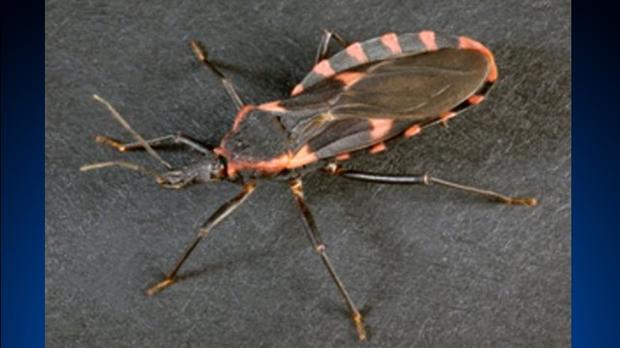Blood-Sucking 'Kissing Bug' Bites Delaware Girl; CDC Says They Are In Maryland Too
KENT COUNTY, Del. (WJZ) -- It's called the "kissing bug." It's a blood-sucking insect that attacks humans, often biting them in the face. Centers For Disease Control officials say they have documented the very first case in Delaware.
The Triatomine bugs are found in the states on the East Coast and the southern U.S. including Pennslyvania, Maryland and Virginia.
State health officials in Delaware reported the young girl was watching TV in the bedroom of her Kent County home last summer when the bug bit her.
The bugs are often seen in Central and South America and can carry a parasite that causes "chagas disease." Chagas disease can cause serious cardiac and gastrointestinal complications, according to the CDC.
Fortunately, the child never got sick.
The CDC recommends the following to prevent an infestation: remove trash, wood, and rock piles from around the home, clear out any bird and animal nests from around the home, keep outdoor lights away from homes, dog kennels, and chicken coops, and inspect and seal any cracks or gaps in your home.
The bugs usually can be found:
- Beneath porches
- Between rocky structures
- Under cement
- In rock, wood, brush piles, or beneath bark
- In rodent nests or animal burrows
- In outdoor dog houses or kennels
- In chicken coops or houses
"If you find a bug you suspect is a triatomine, do not touch or squash it. Place a container on top of the bug, slide the bug inside, and fill it with rubbing alcohol or, if not available, freeze the bug in the container. Then, you may take it to your local extension service, health department, or a university laboratory for identification," the CDC stated.
Experts say that if you travel you should check your luggage when you return home.
"Shake luggage off," John Cambridge, CEO of Philadelphia Insectarium and Butterfly Pavillion, said. "Don't leave it open and close it and assume you didn't let anyone scamper in there."
Doctors in Maryland are also issuing warnings to residents.
"It bites you and it sucks your blood," Neil Roy, a doctor at Siani, said. "While it does that, it defecates. The parasite is in the feces of the insect which then goes in through the bite which gets you sick."
Doctors say if you think that you may have been bitten, monitor for symptoms like a swollen eye or shortness of breath.
If you have any difficulty breathing, doctors say to call them immediately.
More on the bugs can be found on the CDC's website.




